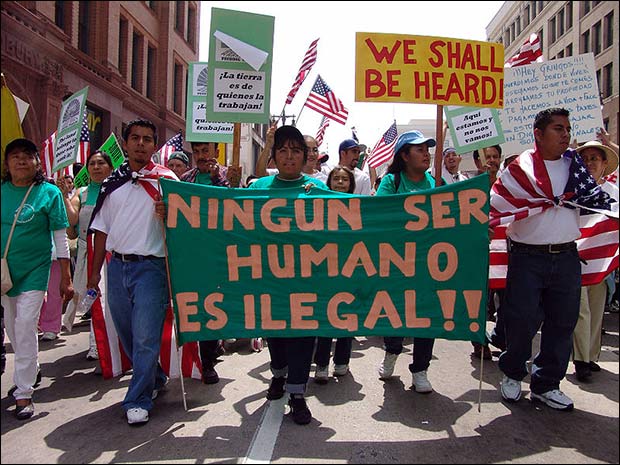Adan Salazar
January 30, 2014
Mexico is one of the roughest places for illegal immigrants.
Indeed, one United Nations Human Rights representative upon visiting Mexico’s southern border with Guatemala, remarked,
Mexico is one of the countries where illegal immigrants are highly vulnerable to human rights violations and become victims of degrading sexual exploitation and slavery-like practices, and are denied access to education and healthcare.The Guatemalan border is Mexico’s most porous, and border guards act with violent vigilance to protect it. “The guards’ use of violence, rape, and extortion against those seeking to cross into Mexico has, in fact, managed the border so well that the country has only a minimal illegal-immigration problem,” DiscoverTheNetworks.org has pointed out.
Despite their own country’s harsh treatment of undocumented immigrants, no one in Mexico is calling for “reform” to their immigration policies. Instead, members of Mexico’s fleeing population sometimes become adamantly vocal once they enter the U.S. illegally, and join protests organized by leftist coalitions against our already incredibly lax border policies.
But in Mexico, don’t think this type of behavior would be tolerated.
For starters, illegal immigrants are barred from upsetting “the equilibrium of the national demographics,” according to Mexico’s immigration policy.
Under Mexico’s Immigration Law, illegal immigration is considered a felony punishable by up to two years in prison “and a fine of three hundred to five thousand pesos will be imposed on the foreigner who enters the country illegally.”
Migrants are only welcomed “according to their possibilities of contributing to national progress,” and only after immigration officials “ensure” that “immigrants will be useful elements for the country and that they have the necessary funds for their sustenance” and for their dependents.
Furthermore, Mexico’s Secretary of Governance, the counterpart to the U.S.’s Homeland Security Secretary, can “suspend or prohibit the admission of foreigners when he determines it to be in the national interest,” and close tabs are also kept on those who permeate its borders.
However, despite strict laws governing immigration, the Mexican government has worked backhandedly to ensure U.S. border control efforts are stifled.
In 2007, the Mexican government gave the go-ahead to its U.S. consulates to “ramp up a campaign to toughen their defense of immigrants and plans to give them more resources as well,” a report in the Dallas Morning News states.
“Among the actions under discussion are the creation of an anti-defamation league similar to that focused on protecting Jews; budget increases for some of the 47 consulates, especially in regions such as North Texas, where Mexican migration has been swift and plentiful; and a media campaign aimed at counteracting groups opposed to illegal immigration and sometimes legal immigration,” the Morning News reported.
Reports abound (here, here and here) of U.S. Border Patrol agents who claim they’ve been ordered to stand down from securing our nation’s borders or reduce their capture of immigrants. No doubt treating our borders as if they’re non-existent ensures Mexico’s authoritarian laws and politics find their way into the U.S.
For a country whose own laws strictly manage immigration, the Mexican government certainly doesn’t practice what it preaches.




0 comments:
Post a Comment